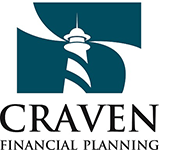Disability Insurance for Corporation Owners in Ontario


by Bill Craven
Protecting Your Business in a Crisis: Disability Buy-Sell & Wage Loss Plans for Ontario Corporation Owners
Tailored insights for incorporated professionals, medical practices, and business partnerships.
What would happen to your business if you suddenly couldn’t work?
For many incorporated professionals, it’s a question they’ve never seriously considered—until life forces the issue. A disability doesn’t just pause your income—it can unravel years of planning, destabilize your business, and leave your family with tough financial choices.
That’s why smart planning isn’t just about investments or tax shelters. It’s about building real protection into your corporate structure. Strategies like disability buy-sell insurance and wage loss replacement plans aren’t just “nice to have”—they’re how professionals in Ontario keep their income secure, their partnerships intact, and their legacy on track.
This isn’t just theory. It’s what I help clients navigate every day. If you have questions about protecting your income or your practice, I’m here to help.
519-351-9411 | bill@cravenfp.com
About the Author: William (Bill) Craven, CFP, EPC
With over 30 years of experience guiding clients through life’s financial crossroads, Bill is more than a planner—he’s a steady hand when things get uncertain.
Certified Financial Planner (CFP) and Elder Planning Counsellor (EPC)
– Mutual Fund Representative – Investia Financial Services Inc
- Specializing in Insurance & Retirement – Craven Financial Planning
– Trusted by incorporated professionals, business owners, and retirees across Southern Ontario
– Known for his straight talk, long-term support, and deep understanding of how disability, taxes, and succession planning intersect
“When people call me, it’s not because they want to talk insurance. It’s because they want to protect what matters most—and I help them do that with clarity and care.”
Why Disability is the Overlooked Risk for Business Owners
Ask any incorporated business owner what keeps them up at night, and they’ll likely mention taxes, the economy, or maybe succession planning. But the one risk that rarely makes the list—and yet can be the most devastating—is disability.
Most professionals assume they’re invincible. Until they’re not.
It’s not a pleasant thought. But disability happens more often—and more quietly—than people realize. A car accident. A stroke. A chronic illness. In my three decades of advising clients across Southern Ontario, I’ve seen firsthand how a single medical event can throw years of careful financial planning off course.
According to government data, nearly 22% of Canadians aged 25–64 identify as having a disability. Many of these individuals were working professionals who didn’t see it coming.
https://www.canada.ca/en/employment-social-development/programs/disability/arc/income-disability.html
The Hidden Impact
When you’re self-employed or run your own corporation, your ability to earn isn’t just about your personal income—it’s the foundation of your entire business. If you’re suddenly unable to work:
- Revenue stops or slows.
- Staff and operational costs continue.
- Partnerships strain under uncertainty.
- Clients may go elsewhere.
- Your retirement timeline derails.
Now imagine if you also had a business partner, and there’s no plan for what happens if one of you can’t return to work. It doesn’t take long before stress turns into conflict—and conflict turns into financial damage.
Why It’s Often Ignored
Most incorporated professionals spend more time planning their next vacation than thinking about what happens if they become disabled. It’s not laziness—it’s human nature. We don’t like to imagine worst-case scenarios.
But the smartest clients I work with understand one truth: planning for uncertainty is the foundation of financial strength. And that’s where the right insurance strategies—like disability buy-sell agreements and wage loss replacement plans—make all the difference.
“You don’t need to be paranoid. But you do need to be prepared. That’s what good planning is all about.”
What Is a Disability Buy-Sell Agreement (and Why It Matters)?
If you own a business with one or more partners, you’ve likely heard of a buy-sell agreement. Most people think of it as something triggered by death. But what if your partner becomes disabled—unable to return to work for months, or even years?
That’s where a disability buy-sell agreement becomes not just helpful, but essential.
What It Does
A disability buy-sell agreement outlines what happens if a business owner becomes permanently or long-term disabled. It gives the remaining owner(s) the legal right—and the financial means—to buy out the disabled partner’s share, allowing the business to move forward without disruption or conflict.
This agreement is typically funded by disability insurance, which ensures the funds are available exactly when they’re needed.
📥 FREE DOWNLOAD:
Grab our Disability Insurance Checklist for Corporation Owners in Ontario — everything you need to protect your income, business, and estate.
👉 Download the Checklist (PDF)
Why It Matters in Ontario
Many incorporated professionals in Ontario operate close-knit partnerships—whether it’s two dentists, three engineers, or a married couple running a consulting firm. Without a disability buy-sell agreement:
- The disabled partner may legally retain ownership—even if they can’t contribute.
- The active partner(s) are left carrying the financial and operational burden.
- Disputes can arise over the value of the business or timing of any buyout.
When structured properly, this agreement:
– Creates legal clarity
– Protects both partners financially
– Preserves business continuity
– Can even be integrated into a broader succession plan
What I Tell Clients
In my experience, partnerships fall apart not because people stop getting along—but because they never planned for the tough stuff. A well-crafted disability buy-sell agreement isn’t just a piece of paper. It’s a contract that protects relationships, reputations, and the long-term value of the business.
“You went into business together for a reason. The right planning ensures a disability doesn’t take that away.”
Wage Loss Replacement Plans – A Smarter Way to Protect Income
If you’re incorporated and earning a high income, personal disability insurance may not give you the full protection you think it does. That’s where wage loss replacement plans (WLRPs) come in—a powerful, tax-efficient alternative for Ontario professionals and business owners.
What Is a Wage Loss Replacement Plan?
A WLRP is an arrangement where your corporation pays the premiums for a disability plan that replaces your income if you’re unable to work. Unlike traditional group plans, a WLRP can be custom-built around your income and needs and often provides far better value.
In simple terms:
- Your corporation pays the premiums
- The plan protects your personal income
- The benefits can be tax-free under the right conditions
This makes WLRPs ideal for:
- Physicians, lawyers, and consultants with PCs
- Business owners drawing income via salary
- Any incorporated professional who wants control over their coverage
Why It’s Better Than Standard Group Plans
Many group plans are designed for the average employee—not high-income earners or business owners. They come with:
- Caps that limit your monthly benefit
- Restrictions on how and when you can claim
- Minimal customization or tax strategy
A WLRP is different. It lets you:
- Design your coverage to reflect your real income
- Coordinate with your accountant for optimal tax results
- Avoid overpaying for underwhelming coverage
What I Recommend
When I meet with incorporated professionals across Ontario, I often find they’re either uninsured—or overpaying for personal policies that don’t suit their situation. A WLRP gives you structure, protection, and peace of mind—all within the framework of your corporation.
“You built your income stream through effort, risk, and strategy. Protecting it shouldn’t be left to a one-size-fits-all plan.”
As Advisor’s Edge explains, a properly structured WLRP can offer both tax savings and stronger protection than typical personal policies—especially for higher-income earners.
A properly structured WLRP can offer both tax savings and stronger protection than typical personal policies.”
https://www.advisor.ca/tax/tax-news/wage-loss-replacement-plans-can-offer-tax-efficiencies/
Choosing the Right Approach for Your Corporation
There’s no universal formula for disability planning. The right solution depends entirely on who you are, how your business is structured, and what you value most.
If you’re incorporated, earning a consistent income, or have business partners, you owe it to yourself—and your business—to consider how a disabling illness or accident would play out. Not just financially, but emotionally and operationally.
Here are a few of the key questions I walk clients through:
Key Decision Points
- Do you operate solo or with partners?
- Are you drawing income as salary, dividends, or both?
- What are your fixed business overhead costs each month?
- If you have a partner, is there already a buy-sell agreement in place?
- Would your family, employees, or clients be affected if you couldn’t work for 6–12 months?
These aren’t just hypotheticals—they’re practical questions that reveal gaps most people don’t realize they have.
Tailoring the Plan
- If you’re in a partnership, a disability buy-sell agreement should be part of your corporate DNA.
- If you’re a solo incorporated professional, a WLRP may give you better protection and tax advantages than a personal plan.
- If you’re in a high-liability role (surgeon, senior engineer, etc.), we might explore layering both strategies for a truly bulletproof setup.
“My job isn’t to sell you a policy—it’s to help you make the smartest decisions with the business and life you’ve built.”
Incorporated professionals across Ontario work too hard—and take too many personal risks—to leave this kind of planning up to chance. With the right structure in place, you can protect your income, your company, and your legacy—without sacrificing flexibility or control.
Top 3 Moves for Incorporated Professionals in Ontario
- Structure Your Income Protection Through Your Corporation
Instead of paying personally, use a Wage Loss Replacement Plan (WLRP) to fund disability coverage through your company—smart, efficient, and often more tax-friendly. - Put a Disability Buy-Sell Agreement in Writing
If you have a business partner, make sure you’ve clearly documented what happens if one of you can no longer work. And back it with proper insurance funding. - Review Your Plan With a Financial Expert Who Knows Both Insurance and Incorporation
The right advisor can show you how disability insurance connects to tax planning, succession strategy, and long-term wealth.
“Too many professionals wait until they’re already off work to ask the tough questions. I’d rather help you plan while you’re strong—and in control.”
— Bill Craven, CFP, EPC
FAQ
1. What is a disability buy-sell agreement?
2. How does a wage loss replacement plan (WLRP) work in Ontario?
3. Can I pay disability insurance premiums through my corporation?
4. What’s the difference between a personal disability plan and a WLRP?
5. Is disability insurance really necessary if I’m healthy?
Let’s Build a Plan That Protects What You’ve Built
If you’re not sure how your business—or your income—would hold up if something unexpected happened, now’s the time to build a plan.
Whether you’re incorporated, running a professional practice, or simply want peace of mind, we can walk through your options and structure a solution that protects what matters most.
📞 Call Bill Craven: 519-351-9411
📧 Email: bill@cravenfp.com
“You’ve worked too hard to leave your future to chance. Let’s make sure it’s protected—properly.”
Further Reading from Bill Craven
Explore more trusted guidance tailored to incorporated professionals, business owners, and Ontario families planning for a secure future.
Incorporating RRSPs into Your Financial Plan
Learn how to align your RRSP strategy with your corporation to reduce taxes and grow long-term wealth.
https://cravenfp.com/incorporating-rrsps-into-your-financial-plan/
Choosing the Right Insurance Solutions
Not all insurance is created equal. This post helps you understand what protection you really need—and what to avoid.
https://cravenfp.com/choosing-the-right-insurance-solutions/
Life Insurance for the Professional Corporation
A must-read for physicians, consultants, and incorporated professionals looking to balance protection with tax-smart planning.
https://cravenfp.com/life-insurance-for-the-professional-corporation/
Sun Life Disability Insurance Calculator
Quickly estimate how much disability income you might need to protect.
https://www.sunlife.ca/en/tools-and-resources/money-and-finances/tools/calculators/disability-insurance-calculator/
BDC Business Valuation Guide
Planning a buy-sell agreement? Learn how to value your business the right way.
https://www.bdc.ca/en/articles-tools/start-buy-business/buy-business/business-valuation-guide
These are more than articles—they’re your roadmap to smarter planning.
📞 Contact Bill Directly for Personalized Advice
Have questions or need a second opinion? Let’s review your options together.
https://cravenfp.com/contact/
📥 FREE DOWNLOAD:
Grab our Disability Insurance Checklist for Corporation Owners in Ontario — everything you need to protect your income, business, and estate.
👉 Download the Checklist (PDF)
Mutual funds, approved exempt market products and/or exchange traded funds are offered through Investia Financial Services Inc.
The comments contained herein are a general discussion of certain issues intended as general information only and should not be relied upon as tax or legal advice. Please obtain independent professional advice, in the context of your particular circumstances. This article was prepared by Bill Craven who is an Investment Funds Advisor at Craven Financial Planning a registered trade name with Investia Financial Services Inc., and does not necessarily reflect the opinion of Investia Financial Services Inc. The information contained in this presentation comes from sources we believe reliable, but we cannot guarantee its accuracy or reliability.

ETF Funds vs ETFs in Canada
ETF Funds vs ETFs in Canada: What’s the Real Difference—and Why It Matters to Your Money By Bill Craven B.A.,CFP,EPC “It’s easy to assume ETF Funds and ETFs are interchangeable. After all, they share the same acronym. But dig just a little deeper, and the differences can have a major

Disability Insurance for Corporation Owners in Ontario
by Bill Craven Protecting Your Business in a Crisis: Disability Buy-Sell & Wage Loss Plans for Ontario Corporation Owners Tailored insights for incorporated professionals, medical practices, and business partnerships. What would happen to your business if you suddenly couldn’t work? For many incorporated professionals, it’s a question they’ve never
William (Bill) Craven, BA, CFP, EPC, is a seasoned financial expert with over three decades of experience in helping Canadians plan for the future with confidence. As the founder of Craven Financial Planning, Bill has built a reputation for delivering tailored financial planning and insurance strategies that align with each client’s unique goals, tax considerations, and long-term security.
Based in Chatham, Ontario, Bill is a Certified Financial Planner (CFP), Elder Planning Counsellor (EPC), and a Mutual Fund Representative with Investia Financial Services Inc. He provides trusted guidance on RRSPs, TFSAs, retirement income planning, life and disability insurance, estate bonds, and tax-efficient investment solutions.
Recognized for his integrity, personal service, and depth of knowledge, Bill works with individuals, families, and business owners throughout Southwestern Ontario to build financial confidence through personalized, values-based planning.
